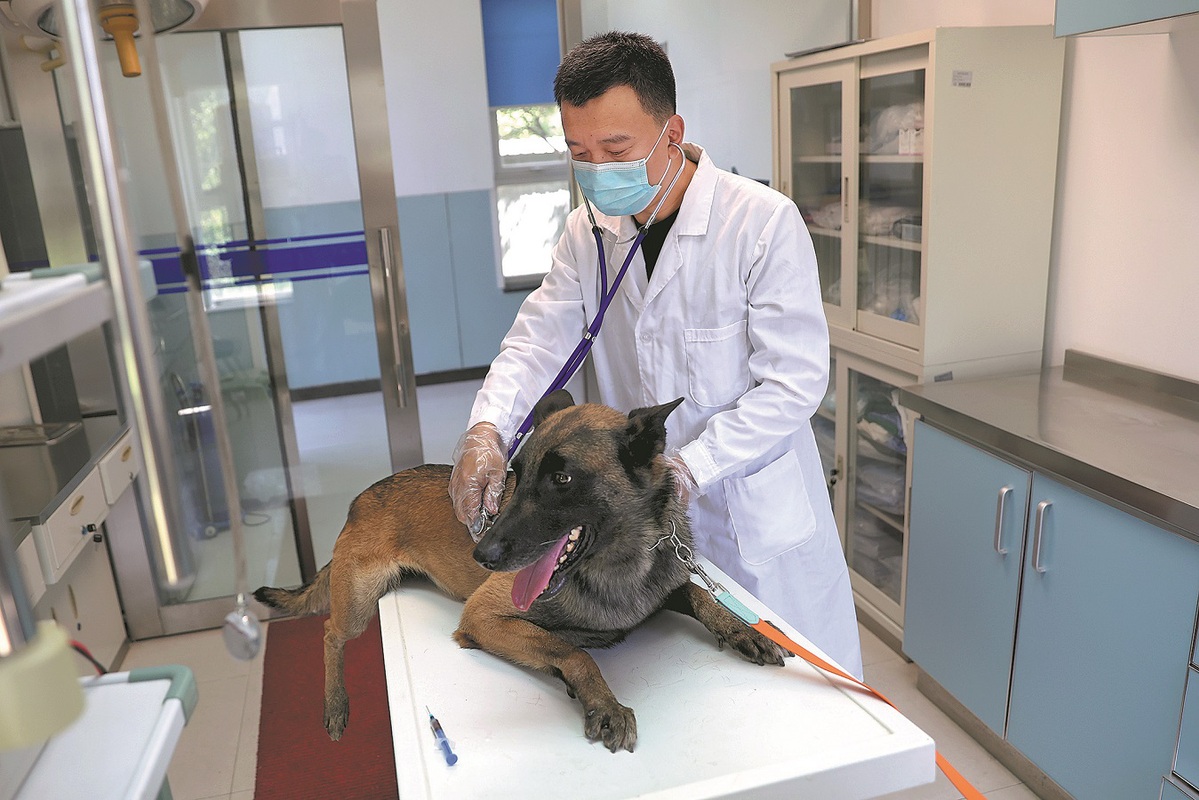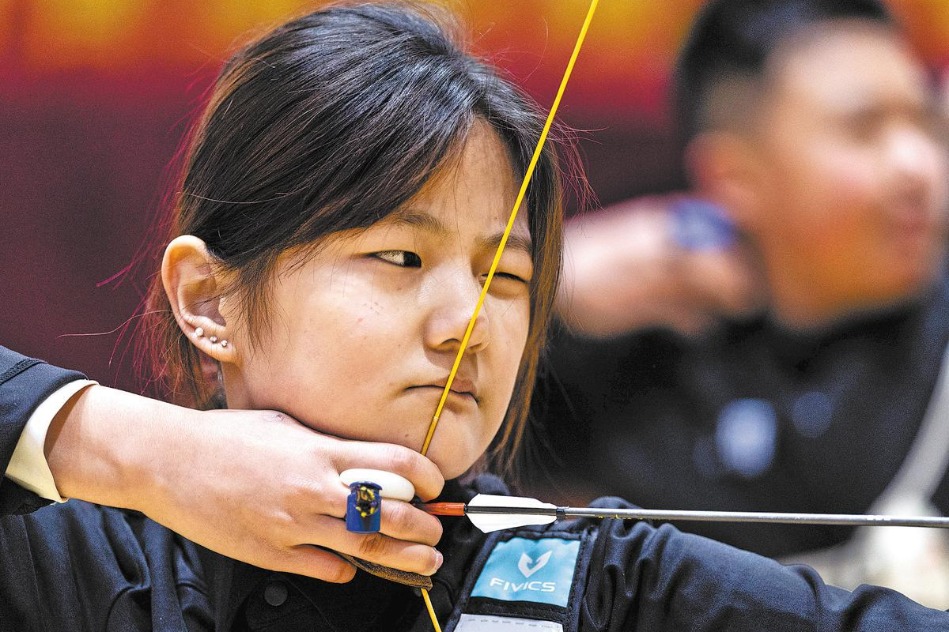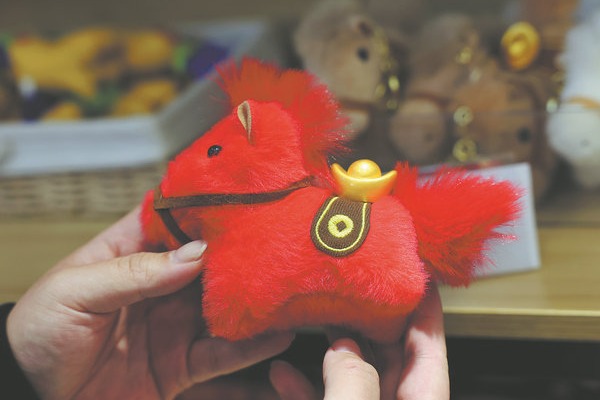Police pups bound ahead in battle to lick crime
Canine training focuses on humane, rewards-based system


Hide and seek
Song Zheng, a 26-year-old police officer, clearly remembers the first time Andy — a black German shepherd — successfully sniffed out a hidden knife during a training session.
Song had concealed a knife with a "suspect's" scent in one box and a knife with a different person's scent in another box as part of a training exercise. "Andy was not very clear about the rules of the game in the beginning," Song said.
The dog eventually learned to determine the correct box through rewards-based behavior reinforcement. "He just didn't get the idea back then," said Song. "Gradually, he realized that there was a rule that he needed to follow. Only by doing the right thing could he earn the ball; otherwise, there would be no ball to play with."
For the first three days, Andy would react to all the distractions after entering the training room, Song said. On the fourth day, however, he started to understand the aim of the training exercise.
"I have no secret to training police dogs," Song said. "I feel that all training theories are quite simple, but in terms of day-to-day training, it's more like playing mind games with the canine. Every day, you are thinking of setting various conditions to challenge the dog. At the same time, he is also thinking of shortcuts to give you what you want."
At the Beijing Police Dog Breeding Centre, Song is known for his connection with and affection for Andy, whom he grooms almost every morning.
In 2020, when he was 22, Song encountered then 7-month-old Andy for the first time. He took the puppy for 10-kilometer runs in the playground three times a week for about two years.
The officer and dog were separated for a few months when Song was temporarily transferred to another division of the criminal investigation corps. But the reunion didn't happen as Song had imagined.
"I thought he'd be really excited to see me again after that period of time, but it didn't happen that way," he said.
"He'd been sticking by me ever since I took him out of the doghouse. But his mood didn't seem to fluctuate very much when I returned, so I'd say he has a very stable character."
Experienced handlers told Song that Andy had a good grounding to practice bite-and-hold techniques to counter attacks, but Song wanted the dog's training to focus on searching for explosives.
"I don't feel any loss that Andy wasn't trained to attack," said Song. "I find that evidence collection and the search skills we've been improving, which are part of criminal investigations, require full concentration and are more fulfilling when missions are completed."
Today's Top News
- Washington's 'spying' allegations hit home
- British PM arrives in Beijing for official visit
- China to deepen high-quality capital account opening
- Immigration bodies handle record 697 million border crossings in 2025
- Xi replies to veterans of Zimbabwe's national liberation war
- Starmer visit pragmatic step in right direction






























